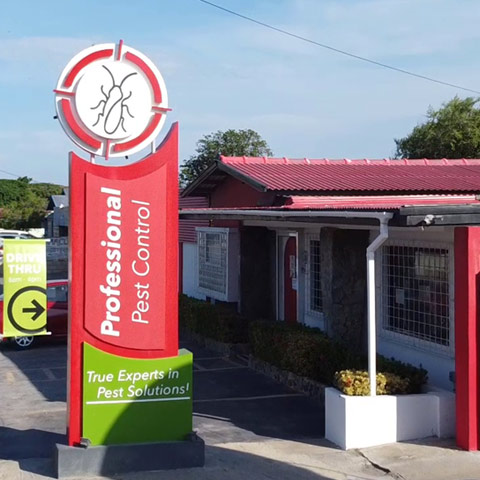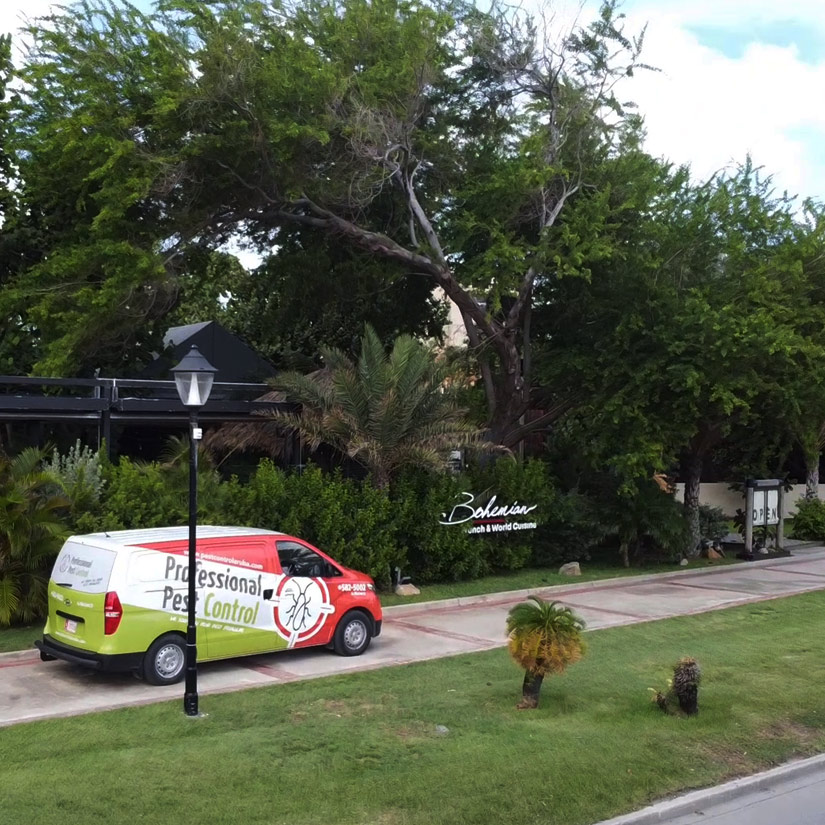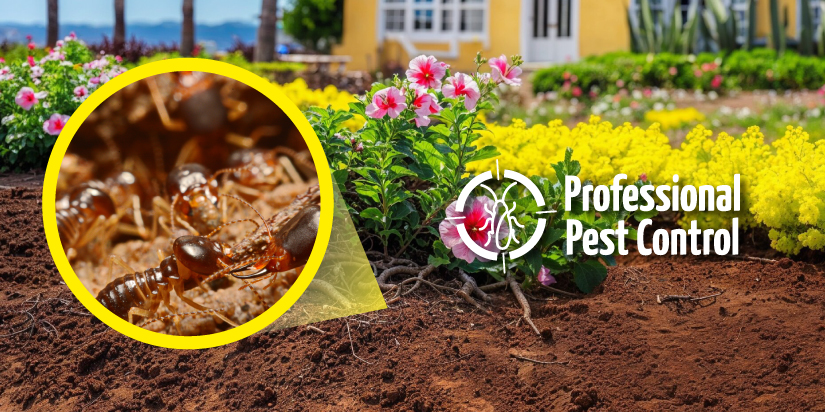When talking about termite damage, most people think of homes, furniture, and wooden beams. But your garden can be just as vulnerable—especially in Aruba.
With its warm weather and nutrient-rich soil, Aruba provides the perfect environment for subterranean termites to thrive outdoors. These pests can silently damage your plants, compromise soil quality, and even use your garden as a path toward your home.
In this article, we’ll explain how termite activity can affect your outdoor space, what signs to watch for, and how to protect your garden before it’s too late.
1. Termites Don’t Just Threaten Homes
While drywood termites are known for attacking structural wood inside homes, subterranean termites, which are common in Aruba, build their colonies underground and forage through the soil in search of food. That makes gardens, especially those with moist, shaded soil and plenty of organic material, a prime target.
They don’t need visible wood to start feeding—dead roots, buried scraps of wood, tree stumps, and even garden mulch can sustain a colony. Once they’re established, these termites often go unnoticed until visible damage appears, not only in the garden but eventually in your home’s foundation or exterior walls.
2. The Hidden Risks in Your Soil
Subterranean termites live in the ground and create long underground tunnels to search for food. In nutrient-rich soil, like many areas in Aruba, they can thrive undetected. They feed on anything with cellulose: wood, roots, mulch, and even dead leaves. Over time, they can compromise plant health and damage garden structures.
3. What They Can Damage in Your Yard
Termites in your garden can affect more than you think:
- Tree and plant roots, especially young or weakened ones
- Wooden planters or raised beds in contact with soil
- Mulch piles, where moisture and wood attract colonies
Fences, garden furniture, and other untreated wood outdoors
What starts in the garden can easily spread to your home if not managed quickly.
4. How to Protect Your Outdoor Space in Aruba
Once termites settle in your garden, they can be difficult to eliminate. That’s why prevention is key. By making a few changes in how you manage your outdoor space, you can reduce the chances of attracting termites and stop them from spreading to your home.
Here are simple ways to reduce the risk:
5. FAQ: Termites in Gardens
- Can termites damage living plants?
Yes. Termites can feed on roots or stems underground, especially in plants that are already stressed or young. - Should I remove old wood or mulch from my garden?
Yes. Wood debris, thick mulch, and moist environments are ideal for termites to nest and spread. - Are wooden planters safe to use?
They can be, as long as they’re raised off the ground and regularly inspected for mud tunnels or damage. - What signs should I look for?
Watch for mud tubes on exterior walls or planters, swarming termites near the soil, or unexplained wilting in plants. - Can Professional Pest Control inspect my garden for termite risk?
Yes. Our team can assess your outdoor areas and recommend targeted solutions to prevent infestations.
6. Need Help Protecting Your Garden?
If you suspect termites in your garden or want to prevent future damage, contact Professional Pest Control. We offer expert inspections and treatments tailored for Aruba’s outdoor conditions.📍 Avenida Milio Croes 92, Oranjestad, Aruba
📞 +297 582 5002



